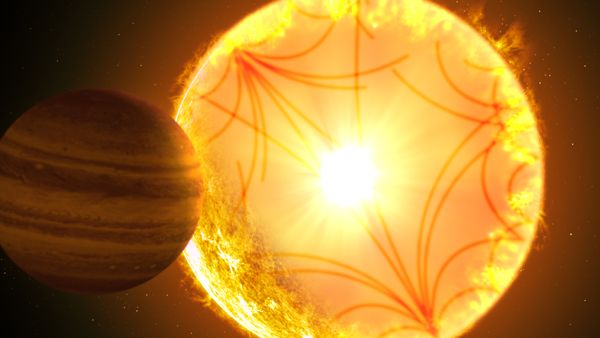
Gabriel Perez Diaz / Instituto de Astrofísica de Canarias
Discovery Alert! Kepler's First Planet Candidate Confirmed, 10 Years Later (News Release - March 5)
Despite being the very first planet candidate discovered by NASA’s Kepler space telescope, Kepler-1658b had a rocky road to confirmation. The initial estimate of the planet’s host star was off, so the sizes of both the star and Kepler-1658b were vastly underestimated. It was later marked as a false positive — that is, scientists thought the data did not really point to a planet — when the numbers didn’t quite add up for the effects seen on its star for a body of that size. Kepler-1658b moved from planet candidate to false positive and back until new software was used to refine the data and reclassify it, changing it from a data anomaly to possible planet.
Fortuitously, a team at the University of Hawaii was poised to step in at just the right time. As part of her first year research project, lead author Ashley Chontos, a graduate student with the university’s Institute for Astronomy, went back through Kepler data looking for targets to reanalyze in 2017.
“Our new analysis, which uses stellar sound waves observed in the Kepler data to characterize the star, demonstrated that the star is in fact three times larger than previously thought. This in turn means that the planet is three times larger, revealing that Kepler-1658b is actually a hot Jupiter,” Chontos said. With this refined analysis, everything pointed to it being a real planet. Next came confirmation.
“We alerted Dave Latham (a senior astronomer at the Smithsonian Astrophysical Observatory, and co-author on the paper) and his team collected the necessary spectroscopic data to unambiguously show that Kepler-1658b is a planet,” said Dan Huber, co-author and astronomer at the University of Hawaii. “As one of the pioneers of exoplanet science and a key figure behind the Kepler mission, it was particularly fitting to have Dave be part of this confirmation.”
Source: NASA.Gov

No comments:
Post a Comment